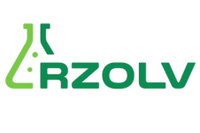Top Renewable Energy Companies Falling Short on Human Rights Policies
According to a new report from the BHRRC, the leading renewable companies have a long way to go in terms of human rights policies.
Most of the largest wind and solar companies lack the human rights policies needed to avoid abusing communities and workers, according to a newly released report from the Business and Humans Rights Resource Center (BHRRC).
“The transition to a net-zero carbon economy is a human rights imperative for all people, but cannot come at the expense of the most vulnerable among us,” it reads. “The ambitious and necessary goal of achieving carbon neutrality by 2050 requires equally robust steps to ensure this transition is truly just.”
The results of the first human rights benchmark suggest that none of the companies analyzed are fully meeting their responsibility to respect human rights, as defined by the UN’s guiding principles.
The London-based organization looked at 16 of the largest publicly traded wind and solar energy companies in the world, which represent over 130,000 megawatts of operating capacity.
Nearly half the companies (seven out of 16) scored below 10 percent, with three quarters (12 out of 16) scoring below 40 percent. For the BHRRC, that shows the industry has a long way to go in terms of demonstrating supply chain and operational respect for the human rights of communities and workers.
“It is imperative that the sector as a whole urgently adopt policies and practices to prevent, mitigate, and remediate the human rights harms emerging from the sector, and take steps now to ensure that the low carbon transition is both fast and fair,” the report states.
In fact, since 2010, the BHRRC has identified 197 allegations of human rights abuses related to renewable energy projects, ranging from killings, threats and intimidation to land grabs and harm to indigenous peoples’ lives and livelihoods.
“The lack of human rights policy strongly correlates with allegations of abuse,” the report explains. “The widespread and egregious practice of land grabs, for example, is reflected in the fact that no companies scored points for having policies to respect land rights, to govern their process of land acquisition, or on just and fair relocation of residents.”
Some of the companies included in the study are Blackrock (NYSE:BLK), Orsted (FWB:D2G), NextEra (NYSE:NEE), Jinko Solar (NYSE:JKS) and Enel (BIT:ENEL).
Don’t forget to follow us @INN_Resource for real-time updates!
Securities Disclosure: I, Priscila Barrera, hold no direct investment interest in any company mentioned in this article.



